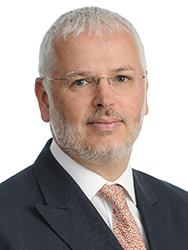Martin King, Class Underwriter — International Professional Indemnity — AEGIS London.
London’s professional indemnity market may have survived the worst of the pandemic’s economic effects but could the growth in remote working be its undoing? AEGIS London’s Martin King says it’s time to travel.
I’m writing these words in a hotel in Canada. It’s my third day here and so far, my diary’s been filled with meetings and coffees. In a few days, I’ll be in Spain; after that, Italy. London’s professional indemnity (PI) market is on the move. After months of Zoom calls, underwriters are finally able to hop on a plane and meet face-to-face with the coverholders and clients on whom our future financial health depends. And that’s important – because even though Covid-19 may be in retreat, the PI market is not out of the woods yet.
For a class that’s only relatively recently achieved some sort of equilibrium, Covid could have destabilised both the market and the wider economy significantly but, in hindsight, a swathe of employment furlough schemes saved underwriters from the worst. Rates had begun to rise at the end of 2018 with that impetus continuing right into early 2020. It’s not an exaggeration to say that the market was gripped by panic when Covid emerged. Many underwriters thought they’d seen it all before. Turns out they hadn’t. Even 30-year-plus veterans like me were unprepared for the pandemic’s indirect impacts and the way its effects rippled out across the global economy.
The collapse in stock markets was unlike anything we’d seen since 2008’s credit crunch. The best we could hope for was a V-shaped recovery, but instead we got a U-shaped one. Some underwriters even feared a K-shaped recession in which some sectors recovered while others continued to fall. That’s proven not to be the case with furlough schemes taking much of the credit. Fears of 10% unemployment did not materialise and today in the UK job vacancies stand at 1.1 million.
The spectre of Covid served to reinforce underwriting discipline and push rates even higher in 2020. From a PI perspective, underwriters were most concerned about the accountancy and insurance broker professions. Accountants audit the books of pandemic-hit businesses and decide whether to give them a clean bill of health. When businesses are under pressure, so accountants’ professional exposures increase.
Insurance brokers also appeared to be caught in the firing line – particularly when placing property- business-interruption-type-policies that may or may not have offered cover for pandemics. We’ve already seen a considerable volume of litigation in the industry related to this with courts in England and Wales tending to side with the policyholder. If the Professional Indemnity policies don’t indemnify the broker, then they are left very exposed. The market for brokers’ errors and omissions cover contracted sharply, and the rates for this business rose further still.
High profile business failures remained relatively rare, primarily because furlough schemes kept firms afloat. However, as furlough schemes are withdrawn around the world, businesses will have to stand on their own two feet again. That will be the day of judgement. The question of whether firms were trading artificially or genuinely with the help of taxpayers will be resolved one way or another.
In truth, it will probably take up to five years for the full effects of the pandemic to unwind. We won’t have the complete picture till then. There will be businesses in underwriters’ portfolios yet to make a claim. Others have notified their brokers of a circumstance but it’s not really going anywhere at this stage. Indeed, many small claims could grow in scale as more and more information is provided. It’s tempting to think you’ve dodged a bullet only to find you’re hit later by adverse claims development. If I think back to 2008’s crisis, there was still recessionary claim activity in 2012.
Today, our economy is opening up. This is clearly good news – except for the prospect of higher inflation. Many businesses are desperate to raise prices in order to recoup pandemic-related losses. This can only fuel inflation, leading to higher interest rates and problems in the mortgage sector as consumers who’ve grown up on low mortgage rates will find their monthly payments increasing.
In the PI market itself, the winners were those brokers and underwriters who took full advantage of online connectivity and e-trading. They grew their businesses. But now things are changing. London is a wholesale market with the majority of its business coming from outside the UK. Many of us have not seen those clients face-to-face for over two years. That has to change.
Before I flew to Canada, several brokers told me it wasn’t worth making the trip. The financial districts are dead, they said. That’s proven not to be the case.
Since arriving here, my diary is full. Senior people who wouldn’t have attended a Zoom meeting are happy to meet in person. And if I need to communicate electronically, my laptop bag now contains all the tools necessary to process a slip, answer emails and hold a Teams call. The pandemic has given us all a crash course in mobile connectivity. When I return to London, I’m confident my in-box will be empty.
Travel reminds people that you’re there. It’s not just about accepting premiums, it’s about human contact. ‘You’re the first London underwriter to visit our office’, one Canadian coverholder told me. So, when domestic markets start nibbling at London’s PI market share, I’ll be able to remind that coverholder of that visit. Because once you’re aware domestic players have eaten your lunch, it’s already too late.
London’s PI market has much to be proud of. But unless we tell our story face-to-face, the growth of domestic competition may be Covid’s most profound legacy.
First published in Insurance Day 19 Nov 2021.

